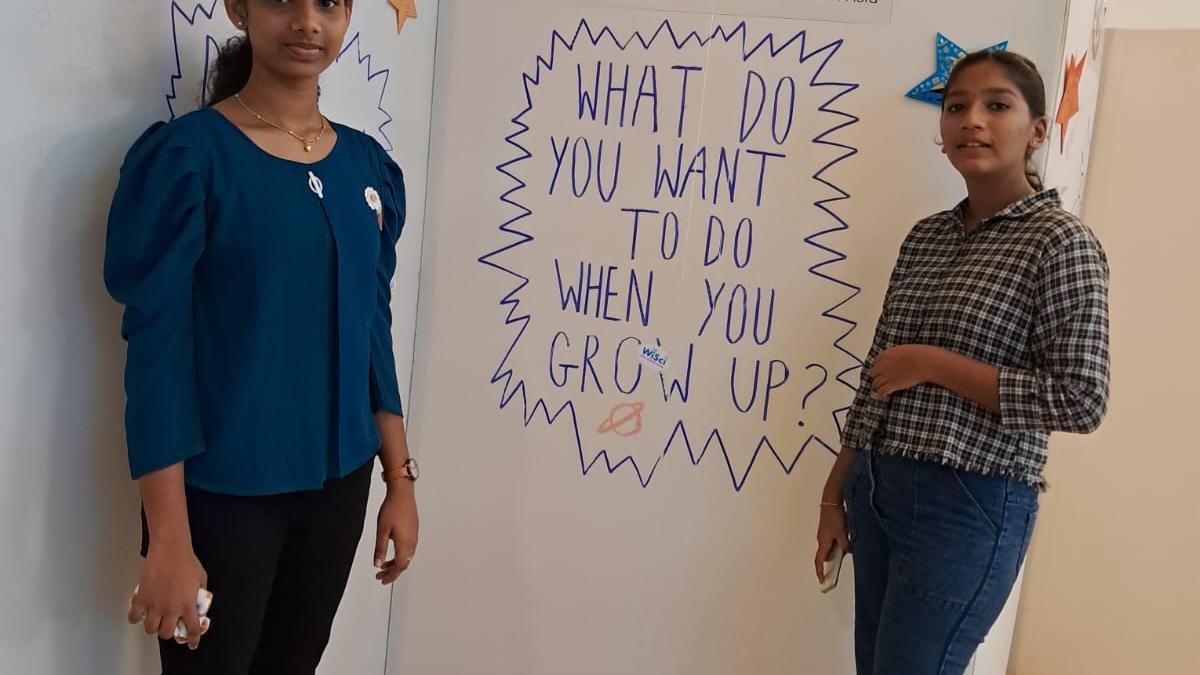
When two Malayali students addressed students from South Asia and the U.S. on fighting climate change
The Hindu
Two students -- Devananda Subin and Arundhathi V.A. -- were selected to drive home the lesson how even children and students could contribute in capacity building in tackling climate change.
Devananda Subin from Puthenvelikkara grama panchayat, a coastal village in Ernakulam district, was just seven years old when she wrote an emotional letter to the Ernakulam District Collector in 2019 on her agonising trip to school wading through the water swept in by tidal flooding. She could not wear her school shoes, no vehicle came to pick her owing to the submerged paths and then one day her pregnant mother stumbled and fell while taking her to school. Her letter created a flutter propelling her to a minor celebrity status as panchayat authorities were dispatched to her house for inspection.
However, the wheels of administration move painstakingly slow and now when she is 12 years old, an embankment is being built along the area, which when completed would benefit 200-odd households from tidal flooding.
Devananda spoke about her childhood misery caused by climate change and how she seized the initiative to resolve it by writing to the Collector at the WiSci (Women in Science) South Asia STEAM (science, technology, engineering, art and design, and mathematics) Camp that concluded here on Saturday. The camp was attended by 100 girls, mostly aged between 15 and 17 years from India, Bangladesh, the Maldives, Sri Lanka, and the United States. It is being organised annually through private-public partnerships between Girl Up, the U.S. Department of State’s Office of Global Partnerships, the U.S. Embassies of India, Bangladesh, the Maldives, Sri Lanka, TE Connectivity Foundation, Google, Caterpillar Foundation, and United Airlines.
Arundhathi V.A., a Plus One student from Puthenvelikkara, was another student volunteer to address the gathering on her experience of being part of a community-driven flood forecasting warning system in Puthenvelikkara since 2021. “I measure rain gauges and then update it on a WhatsApp group and portal every day at 8.30 a.m. It is critical to livelihood security as well. Sharing my experience with girls from other countries was really exciting,” she said.
C.G. Madhusoodhanan, CEO, Equinoct, which runs community-sourced Impact-based flood forecast and early warning system that has been recognised by the UNICEF, said that the two voices were selected to drive home the lesson how even children and students could contribute in capacity building in tackling climate change. Students like Arundhati’s consistent weather monitoring effort to build hyper-local data helped Equinoct to pitch for UNICEF’s Office of Innovations Venture Fund.
“Resigning to one’s fate offers no escape route. Devananda’s efforts, which have opened the way for bringing respite to an entire community, show how it is critical to be proactive in the face of a crisis,” he said.

The girl, who was admitted to Aster CMI Hospital with alarming breathlessness and significant pallor, was diagnosed with Wegener’s Granulomatosis (now known as Granulomatosis with Polyangiitis or GPA), a rare autoimmune condition that causes spontaneous bleeding in the lungs, leading to acute respiratory failure.

ACB files case against IPS officer N. Sanjay in Andhra Pradesh. The official is accused of manipulating the tender processes for awarding contract for development and maintenance of AGNI-NOC portal, and conducting awareness meetings for SC/STs. It is alleged that the total value of properties stolen, or involved in the case is estimated at ₹1,75,86,600.









